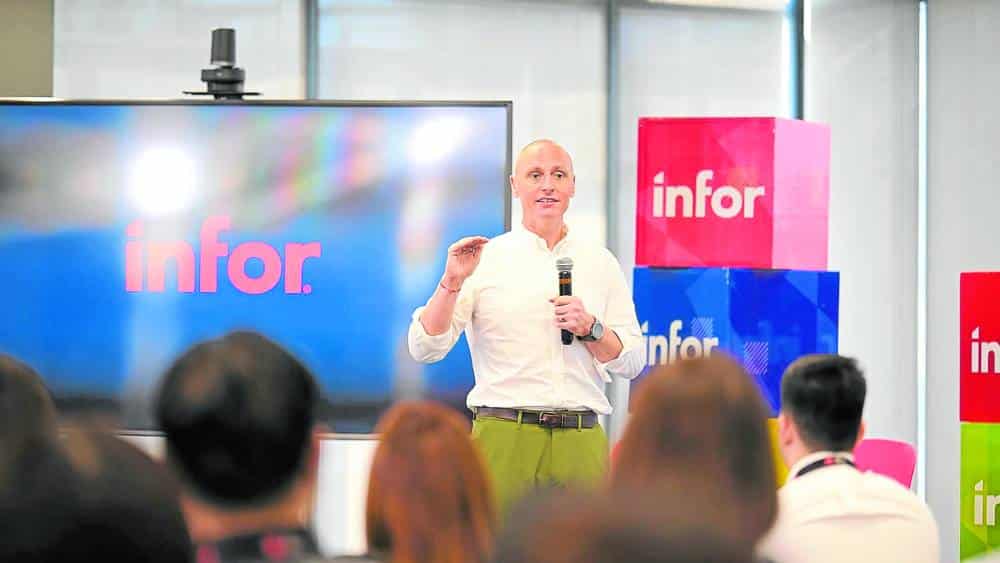
Kevin Samuelson —Contributed photo
With its talented workforce and willingness to embrace new developments in technology, the Philippines is poised to play a leading role in shaping the future of artificial intelligence (AI), says a leading cloud software provider, especially as generative AI continues to be adopted across all industries.
According to Kevin Samuelson, CEO of Infor, the Philippines is easily one of their markets that’s leading more on the generative AI front, especially as the country continues to thrive amid all the innovative industry changes happening globally.
“I would say, by and large, the employees here are more on the leading edge than a lot of other places. So I know, I certainly wouldn’t call our group of employees here slackers at any stage,” Samuelson says. “The talent pool here is exceptional, and there’s a strong openness to embracing new technologies. The Philippines is a perfect location for our generative AI development.”
Infor delivers enterprise solutions—cloud-based software preconfigured for various industries, including enterprise resource planning, supply chain management and human capital management. With more than 3,000 employees in the Philippines, Infor caters mostly to the automotive, aerospace, defense, food and beverage, and manufacturing industries.
Growing footprint in PH
For the past 15 years, majority of the roles of Infor’s teams here in the Philippines have been focused on their development and consulting services, emphasizing the country’s strength in producing skilled tech professionals. Support functions such as customer support, IT, finance and administration and human resources cover the rest.
Samuelson says that as Infor continues to grow their presence here, generative AI will be a game changer both for them and their clients, especially when it comes to productivity.
“We have [an automotive] customer who has very, very complicated manufacturing, with 60,000 different models of their product. So when customers call in and need help getting a spare part, placing products was a very manual job,” Samuelson says. “Generative AI has automated all of that, so in an instant, someone could understand the customer model, required parts, placements that are available, and that takes away all kinds of risk, mistakes. Those are the types of use cases that are proving to be pretty effective, but you have to understand all the processes and data to play, and that’s the unique perspective we have.”
In line with this, employee satisfaction can also be positively affected by generative AI—with the manual, repetitive tasks removed (“the things that employees don’t want to do are not fun,” says Samuelson), employees can focus time and energy on tasks that matter more to them and their organization, he adds.
Ultimately, to fully leverage the advantage that generative AI can bring to one’s business, Samuelson advises companies to look beyond the “wow” factor of this innovation, and focus on finding where it can bring the value for their business. Timing is also key, he says—and the earlier companies explore this new technology, the better their chances of building robust capabilities to support their growth.
“Those who experiment early will likely reap the most significant benefits,” Samuelson says. — Contributed

